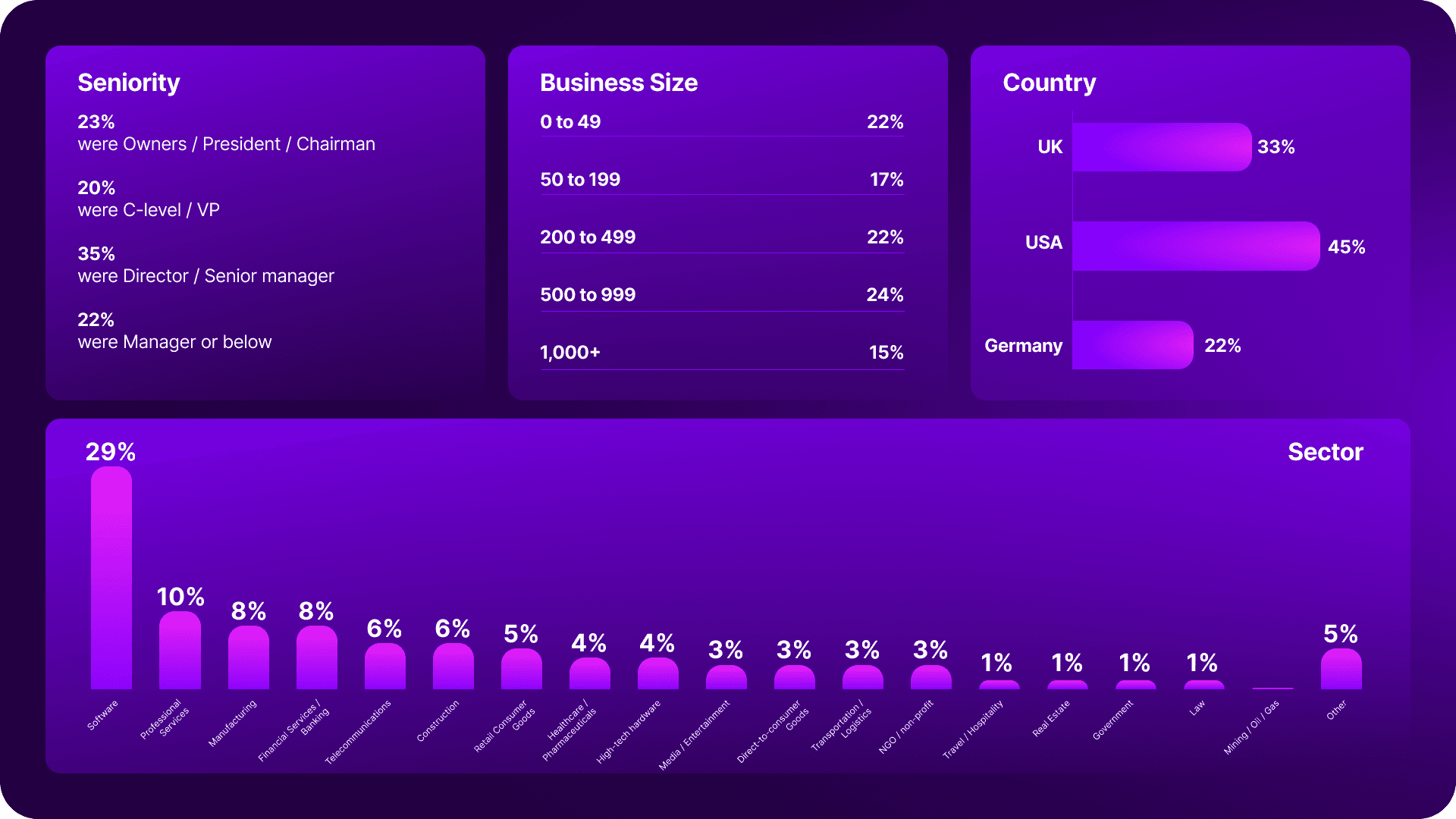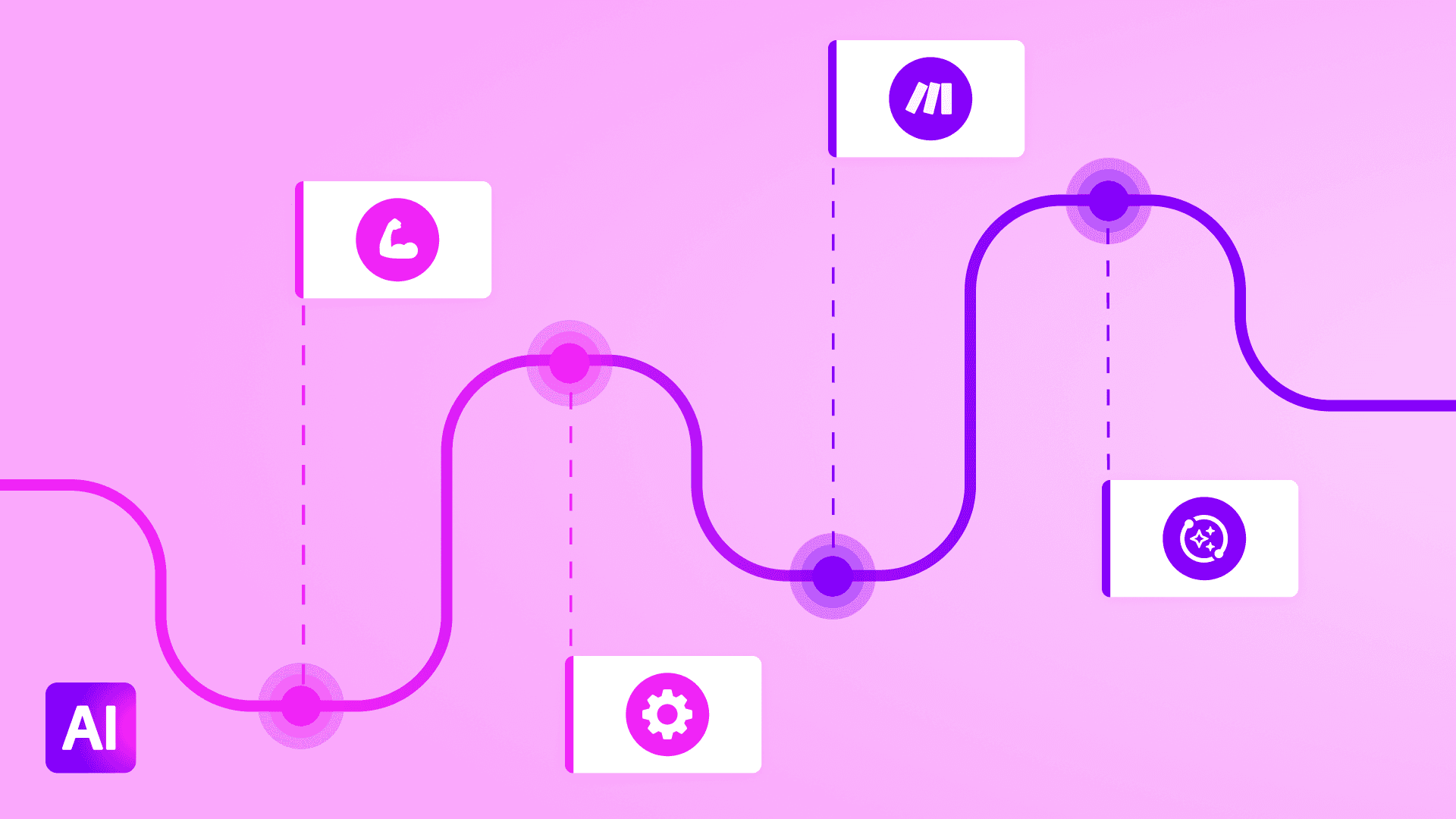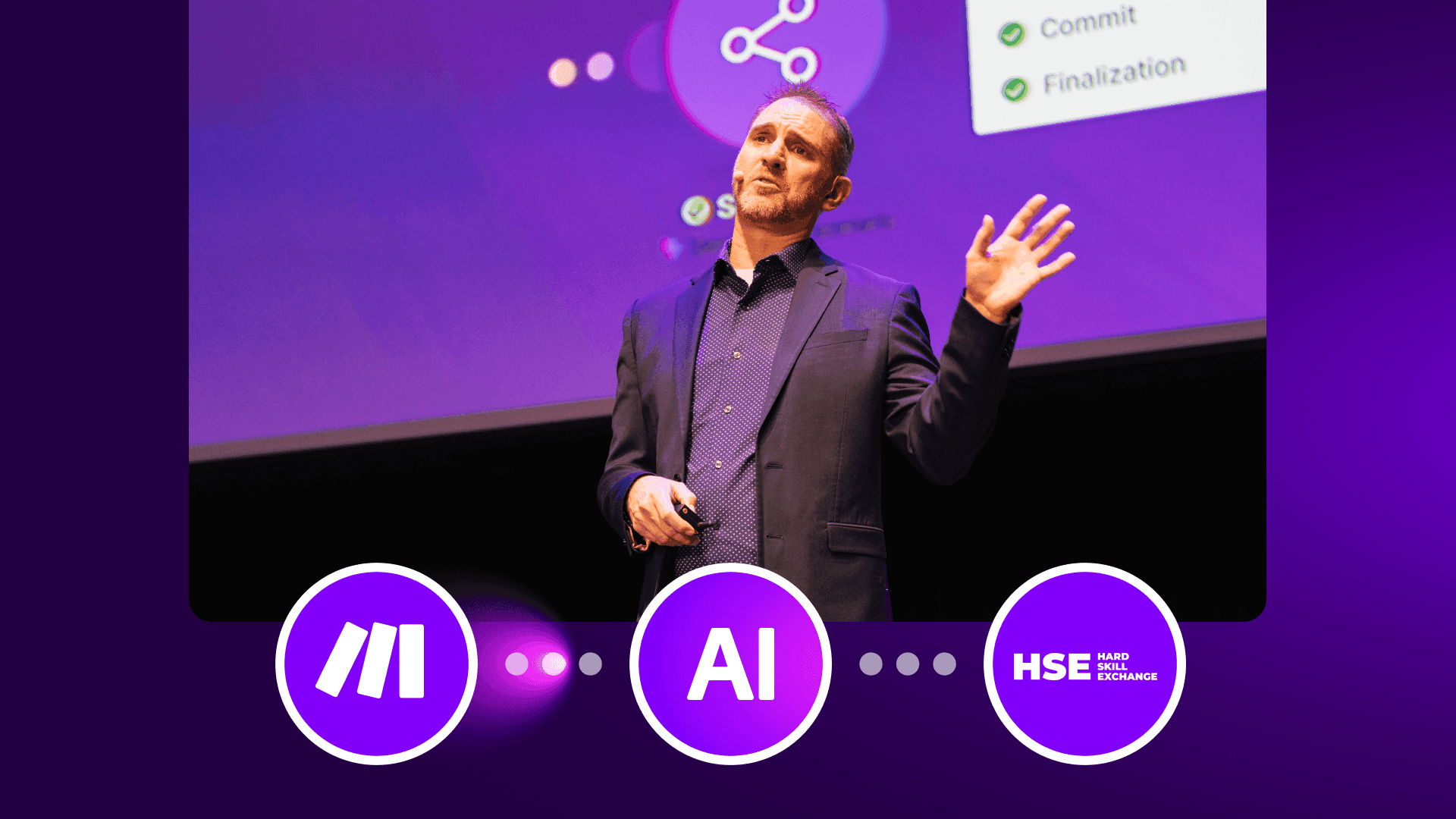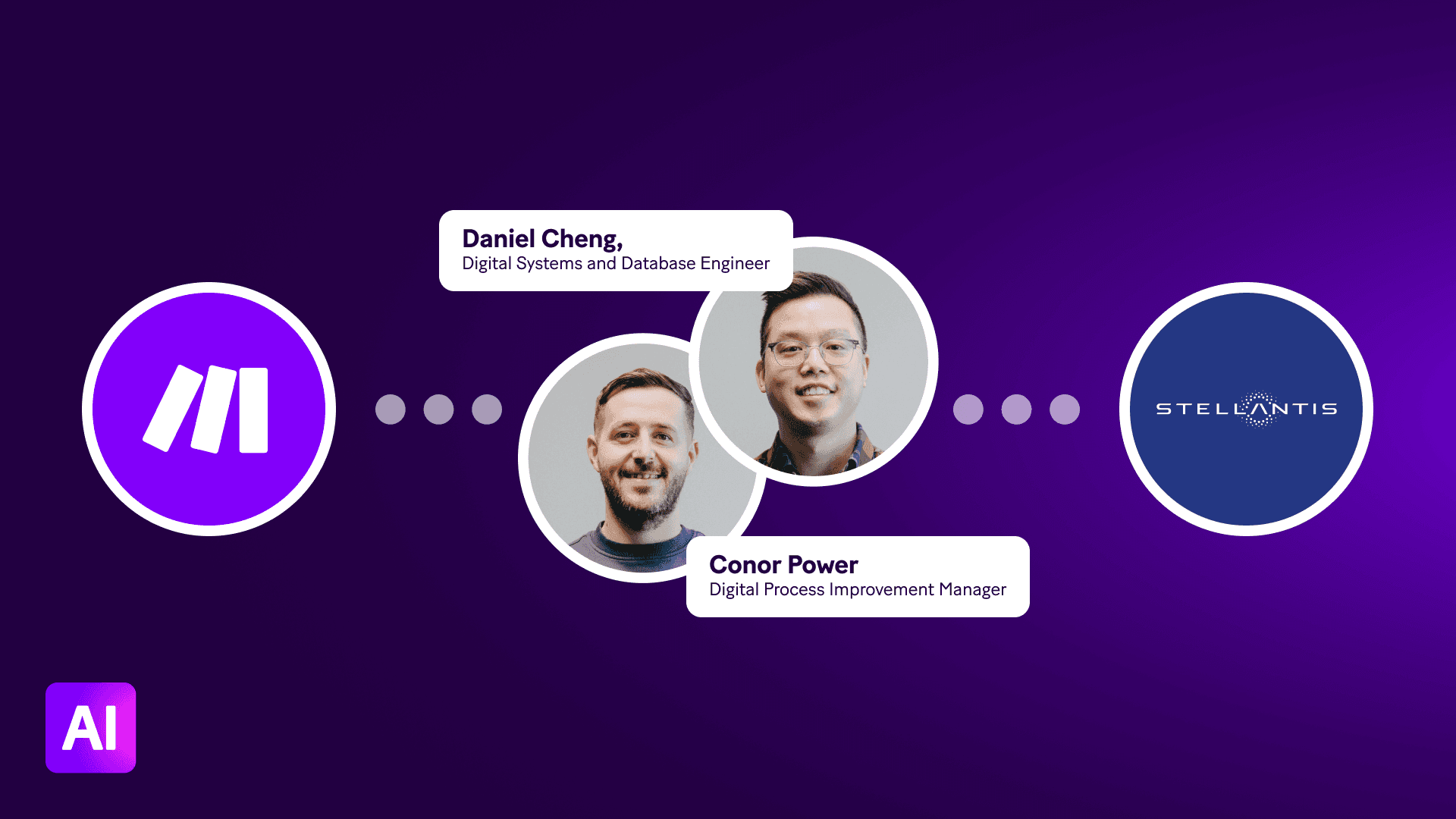Oct 6, 2025 | 5 minutes
Survey says…it's time to turn AI enthusiasm into real results
Dan Etheridge, Head of Brand at Make, breaks down our industry poll about AI's transformative potential – and how to think about barriers to adoption.
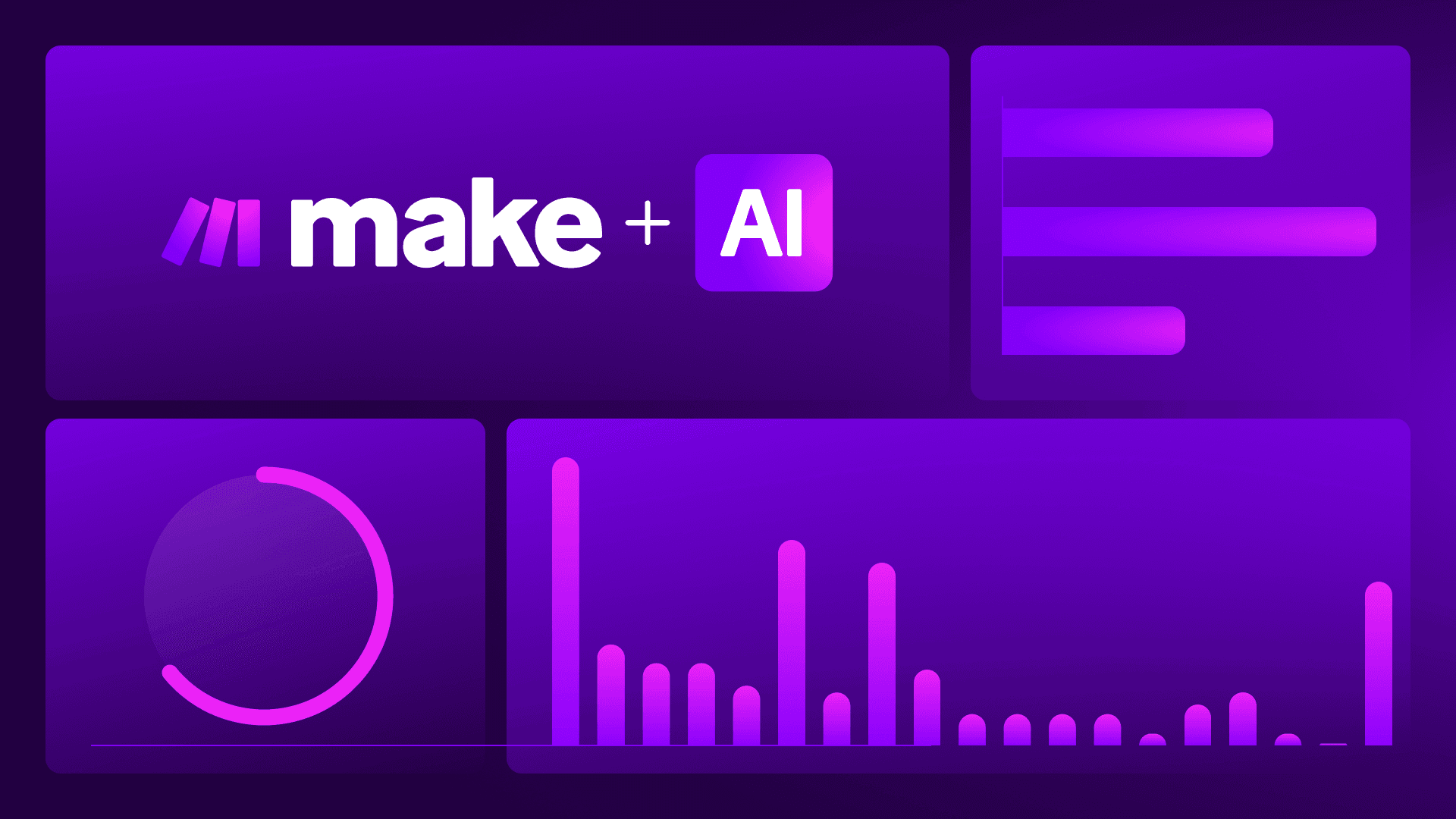
Building any brand means knowing what excites or concerns your customer and how your product helps. But when your company is pushing forward in a sector that's on the tips of everyone's tongues – like Make and AI – you also get the unique opportunity to consider what broader swathes of society think and feel about some of today's biggest questions. That's why, earlier this year, Make commissioned a study to find out how over 1,200 business decision-makers really perceive AI's role in the modern workplace. Our survey data revealed strong enthusiasm – as well as lingering concerns. The conversation across industries is no longer about hype or if organizations will integrate AI, but how they can make actual, valuable outcomes happen.
We've been having similar conversations at Make too. That's why we've gathered a number of practical steps that help remove remaining mental blockers and pave the way for successful AI adoption. Let's take a closer look at the current state of business thinking in the Agentic Age and how Make fits in.
Optimism around AI's potential
Let's first set the scene: overall perceptions of AI are positive. Across seniority levels in businesses from startup size to four-digit headcounts, 84% of our international respondents consider themselves excited about AI's ability to build smarter, adaptive processes.
But as Darin Patterson, my colleague here at Make, recently noted: the opportunity isn't AI – it's what you make with it. For example, 80% of our respondents see AI as a way to streamline and simplify complex workflows; 82% therefore believe AI-driven automation will free up time for more strategic and creative tasks. The takeaway? The majority of the business community sees AI as a key enabler of efficiency and innovation.
Growing trust in AI autonomy
In some areas, AI optimism becomes outright confidence. For instance, 64% of our respondents also feel that AI agents can now reliably handle tasks without constant human oversight. This is huge: the idea that AI can evolve from a simple tool to more of a largely autonomous co-worker is now mainstream – even farmers are benefitting from agentic capabilities.
I believe this confidence is only going to grow as AI agents become more sophisticated and users become more familiar with building and running agentic workflows.
The tension: Risks and concerns
But this belief isn't necessarily shared by everyone or in every situation across the board. A significant number of respondents, 39%, admit they feel unprepared to adapt to AI-enabled workflows. Digging into more specific concerns, the feeling that the speed of AI integration is causing uncertainty and disruption is held by half of our surveyed business leaders – in other words, even some who have confidence in AI's upsides have some discomfort with how and how fast its adoption is proceeding. And while this discomfort may stem from multiple sources, 55% of respondents agreed that a lack of human judgement in critical workflows could lead to issues.
The key takeaway here is that though AI enthusiasm is undeniably high, organizations may be struggling to keep up with the pace of change and are rightly wary of losing human oversight along the way.
Breaking the tension
It's good that professional users are thinking critically about the ways their businesses are adapting to the AI present: identifying risks and concerns signals that leaders genuinely want to move into the Agentic Age in the best way possible. But to slightly adapt Darin's phrase from above, the problem isn't AI, it's how you make with it. The tension points our respondents cited are, in fact, mostly matters of mindset, culture, and skills – all things business leaders are able to influence quite directly.
To start, it's good to put AI into perspective and to learn from the long history of automation tools: even everyday tech like the printing press seemed disruptive at one time, but learning to harness new breakthroughs opens up new heights of achievement relatively rapidly. Fostering a company-wide culture that embraces emerging tech along with the experimentation – and mistakes – that comes with it is crucial to building an adaptive company. These are the firms that truly benefit from new resources like agentic AI.
With experimentation and new ideas openly discussed and encouraged, building your agentic stack around quality data, quality decision-making, and platforms with collaboration at the core helps make AI use transparent and trustworthy. Choosing visual-first platforms like Make, for instance, takes AI out of a technical black box – facilitating knowledge-sharing about how complex automated workflows actually work and allowing even less-technical users to understand and build automations themselves.
Want more examples?
Read all of our customer stories to see how automating with Make helps businesses of all sizes.
Democratizing AI in particular is how to get more expert human judgement in the mix. Putting AI tools directly in the hands of your organization's domain experts – especially those without technical backgrounds – is how they can bring their expertise to bear more effectively. As customers like Stellantis &You have shown, the people closest to the problems are the best placed to ensure that automations are the solutions they actually need, that they produce the most accurate outputs, and that troubleshooting happens efficiently by asking the right questions. This too ratchets up the trust factor: rather than feeling anxious about new AI-powered solutions, the domain experts powering your business gain hands-on experience, grow professionally, and feel more confident and invested in what they're creating and using every day.
Conclusion
Overall, this study confirms what most forward-thinking people have known for some time: AI is transformative. And as more users see its potential to improve efficiency and make space for more creativity, their optimism strengthens and their confidence grows to allow agents to operate more autonomously and AI to help out more broadly. Yet preparedness and above all trust remain critical to implementing AI properly – moving forward, only those who balance AI-driven efficiency with organizational readiness and human oversight will integrate AI successfully. You can ensure your company is ready with Make.

